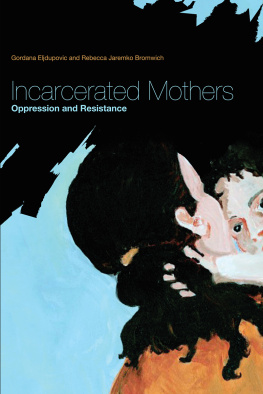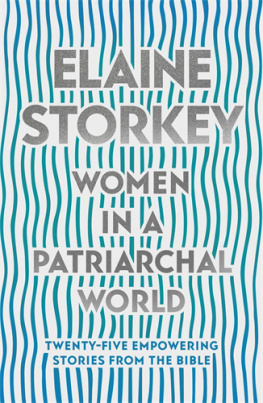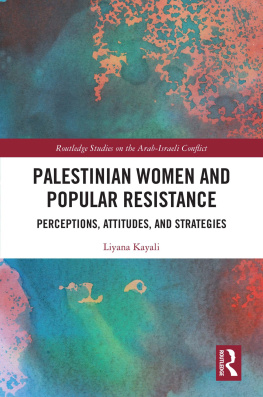Gendered Responses to Male Offending in Barbados
It is generally accepted that men commit more crimes than women. The widespread acceptance of this view is based primarily on the number of convictions with most jurisdictions reporting considerably fewer incarcerated women/girls than men/boys. This manuscript argues however that decisions made by the various stakeholders that play a role in the incarceration of men are inherently gendered. These decisions are based on patriarchal perceptions and stereotypes related to the familial roles of men and women, and by extension their motivations for offending. Few studies have sought to explore the nature of these perceptions, and the effect these may have on incarceration patterns. Indeed, this form of inquiry remains absent from the research agenda of Caribbean criminologists. Using qualitative data from Barbados, this book analyses the extent to which these factors are taken into consideration not only by the police and members of the judiciary, but by examining the gendered decisions made by shop managers and proprietors in cases involving shoplifting, it seeks to analyse the extent to which these factors are taken into consideration before incidents reach the justice system. Critically, this book seeks also to juxtapose these assumptions against testimony from men incarcerated at Her Majestys Prison. The large proportion of males in Caribbean prisons when compared to their female counterparts necessitates an investigation into the factors that may contribute to differential treatment as they move through the justice system. Using data from Barbados, the present study seeks to fill this need.
Corin Bailey is a Senior research Fellow at the Sir Arthur Lewis Institute of Social and Economic Studies at the University of the West Indies, Cave Hill Campus. He is a sociologist with a specific focus on crime and poverty-related research.
Routledge Studies in Crime and Society
Private Security and Domestic Violence
The Risks and Benefits of Private Security Companies Working with Victims of Domestic Violence
Diarmaid Harkin
The Human Factor of Cybercrime
Edited by Rutger Leukfeldt and Thomas J. Holt
Medical Misinformation and Social Harm in Non-Science Based Health Practices
A Multidisciplinary Perspective
Edited by Anita Lavorgna and Anna Di Ronco
Crime, Harm and Consumer Culture
Edited by Steve Hall, Tereza Kuldova and Mark Horsley
Legalizing Cannabis
Experiences, Lessons and Scenarios
Edited by Tom Decorte, Simon Lenton and Chris Wilkins
Female Capital Punishment
From the Gallows to Unofficial Abolition in Connecticut
Lawrence Goodheart
Gendered Responses to Male Offending in Barbados
Patriarchal Perceptions and Their Effect on Offender Treatment
Corin Bailey
For more information about this series, please visit: www.routledge.com/Routledge-Studies-in-Crime-and-Society/book-series/RSCS
Gendered Responses to Male Offending in Barbados
Patriarchal Perceptions and Their Effect on Offender Treatment
Corin Bailey
First published 2020
by Routledge
2 Park Square, Milton Park, Abingdon, Oxon OX14 4RN
and by Routledge
52 Vanderbilt Avenue, New York, NY 10017
Routledge is an imprint of the Taylor & Francis Group, an informa business
2020 Corin Bailey
The right of Corin Bailey to be identified as author of this work has been asserted by him in accordance with sections 77 and 78 of the Copyright, Designs and Patents Act 1988.
All rights reserved. No part of this book may be reprinted or reproduced or utilised in any form or by any electronic, mechanical, or other means, now known or hereafter invented, including photocopying and recording, or in any information storage or retrieval system, without permission in writing from the publishers.
Trademark notice: Product or corporate names may be trademarks or registered trademarks, and are used only for identification and explanation without intent to infringe.
British Library Cataloguing-in-Publication Data
A catalogue record for this book is available from the British Library
Library of Congress Cataloging-in-Publication Data
A catalog record has been requested for this book
ISBN: 978-0-367-18341-7 (hbk)
ISBN: 978-0-429-06091-5 (ebk)
Typeset in Times New Roman
by codeMantra
CALCCountry Assessments of Living ConditionsCARICOMCaribbean CommunityCBDCentral Business DistrictCDBCaribbean Development BankCPACountry Poverty AssessmentsGADGender and DevelopmentGSTGeneral Strain TheoryJSIFJamaica Social Investment FundKMAKingston Metropolitan AreaNCVSNational Crime Victimisation SurveyPRAParticipatory Rapid AppraisalPROTECTProsecutorial Remedies and Other Tools to End the Exploitation of Children TodayRBPFRoyal Barbados Police ForceSRASentencing Reform ActUNUnited NationsUNICEFUnited Nations Childrens FundUNODCUnited Nations Office on Drugs and CrimeWICPThe Women in the Caribbean Project
Crime in Barbados and the Caribbean
As a small island state in the Caribbean, Barbados presents unique perspectives and challenges for research. At the same time, this context offers opportunities for analysis and policy-making that resonate with other countries of the region and around the world that may share commonalities typical of former colonies and plantation economies. The level and changing nature of crime in the Caribbean has led to increasing concern among researchers and policy makers. While during the 1960s property crimes dominated the official statistics, today, the criminal landscape in the region is characterised by violent crime. There is evidence to suggest rates of violent crime in the Caribbean among the highest in the world (UNODC, 2013). Sutton and Ruprah (2017) reported, for example, that the average rate of victimisation and assault in the Caribbean is higher than in any other region globally. High rates have been reported for some of the Leeward Islands, the Dominican Republic, Haiti, Jamaica and the US Virgin Islands. In Jamaica between 1982 and 1997, the homicide rate more than doubled. Between 2003 and 2005 the rate rose from 36 to 58 per 100,000 among the highest in the world (UNODC; World Bank, 2007).
The high level of violent crime in the region has direct links to the trade in illicit drugs. Drug trafficking through the Caribbean began in the 1970s as South American drug cartels took advantage of the advantageous geographical location of the Caribbean that made it well placed to receive drugs from South America and export to the major markets in the United States and Europe. In addition to the benefits of the geographical location, the trade is also allowed to flourish as a result of failures by successive Caribbean governments to secure coastlines and territorial waters (UNODC; World Bank, 2007). Cocaine and Marijuana are the two main substances trafficked through the region. The proximity of Trinidad and Tobago to Venezuela has made it a favourable first landing spot for cocaine, after which it is transported to other Caribbean islands in preparation to be moved to North America and Europe. In 2005 the largest narcotics seizure in Trinidad and Tobagos history was 1.75 tons of pure cocaine seized on Monos Island off the coast of Trinidad (Frederick, 2010). Similarly, the islands of the Netherland Antilles have seen sharp increases in seizures in recent years and account for a considerable share of total arrests for cocaine trafficking in the Caribbean (Frederick, 2010; UNODC; World Bank, 2007). While cocaine originates outside of the Caribbean, the production of marijuana is primarily local with Jamaica the leading producer in the region.





